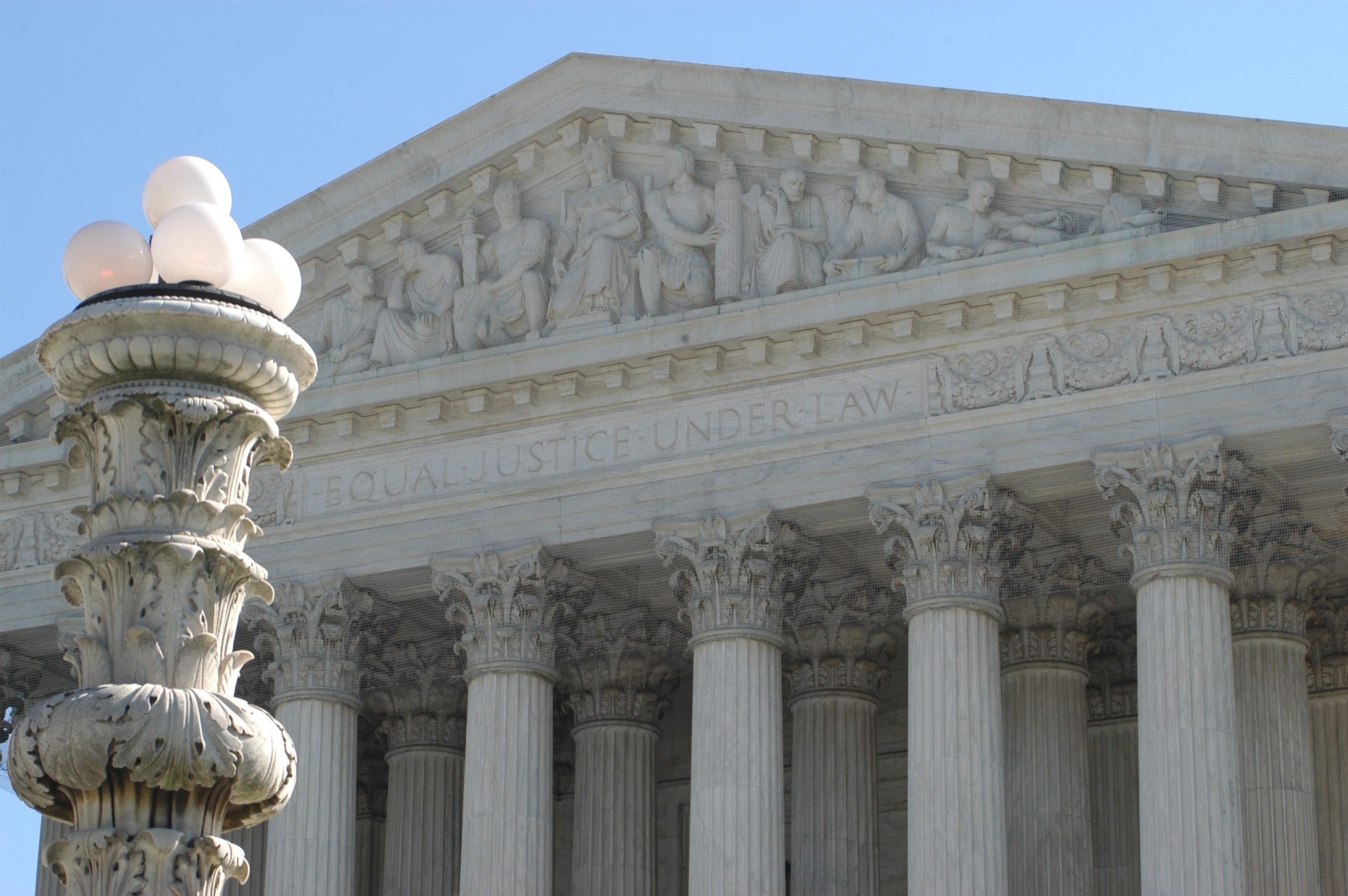Must federal government permit “Trump too small” trademark?


Wednesday’s argument in Vidal v. Elster is the third in a series of First Amendment challenges to provisions of the Lanham Act that bar registration of various kinds of scurrilous marks. In the first, Matal v. Tam, the Supreme Court held that it violated the First Amendment to refuse registration for a mark disparaging Asian Americans; the second, Iancu v. Brunetti, held that the First Amendment invalidated a bar on immoral or scandalous marks (in that case, “FUCT”). At issue in the third part of the trilogy is a provision that bars any mark that “identif[ies] a particular living individual” without that person’s written consent. In this case, Steve Elster attempted to trademark the phrase “Trump too small,” to be used on T-shirts to convey a political message mocking former President Donald Trump, apparently drawn from a comment made by Sen. Marco Rubio in one of the 2016 presidential debates.
Representing the PTO, U.S. Solicitor General Elizabeth Prelogar presents a lucid defense of the statute, as you would expect. Her argument starts from the premise that the Lanham Act does not involve viewpoint discrimination, pointing out that the statute prevents registration of a mark identifying a person without regard to the viewpoint that the mark expresses. Working from there, she argues that the statute should be analyzed as a condition on a government benefit, a pedestrian restriction for which heightened scrutiny is unwarranted. The government correctly points out that nothing in the denial of registration prevents Elster from using the mark in commerce or from gaining rights to prevent others from using it. Trademark rights, by their nature, arise in the first instance under federal law. From the government’s perspective, the denial of the marginal additional benefits of federal registration is readily justified as a reasonable response to the commercial appropriation inherent in the nonconsensual use of a person’s name. Just to be clear – it is the Biden administration appearing before the justices to prevent registration of the Trump-mocking mark.
Elster, of course, presents quite a different view of the matter. Pointing to the prior decisions in Tam and Iancu, Elster argues that heightened scrutiny is necessary because the statute plainly draws a distinction based on the content of speech and the identity of the speaker – Trump could register this mark himself but Elster cannot. Moreover, as a practical matter, the clause in practice discriminates on the basis of viewpoint: The only people who can register marks about Trump are those whose messages he approves. Elster notes pointedly that the PTO has registered Joe 2020, Biden President, and Hillary for America, but refused to register No Joe in 2024, Hillary for Prison 2016, and Impeach 46. And because limiting speech critical of public figures is not a legitimate public interest, Elster contends, the statute could not survive even under a lower level of scrutiny.
If this were the first of these cases, it might be hard to guess how the justices would react. But we know from Tam and Iancu that the court finds these trademark registration limitations dubious, even when the speech is relatively distasteful (as it was in both of the earlier cases). Because the speech here is core political speech, and because the effect of the statute is pretty clearly not viewpoint neutral, I expect that several of the justices will have no sympathy for the government’s position. Having said that, the justices splintered on the proper mode of analysis in the prior cases – filing three opinions in one and five in the other – so there well might be considerable debate about exactly how to justify the result. On that point, we’ll know a lot more by the end of the argument on Wednesday.
Posted in Merits Cases
Cases: Vidal v. Elster
